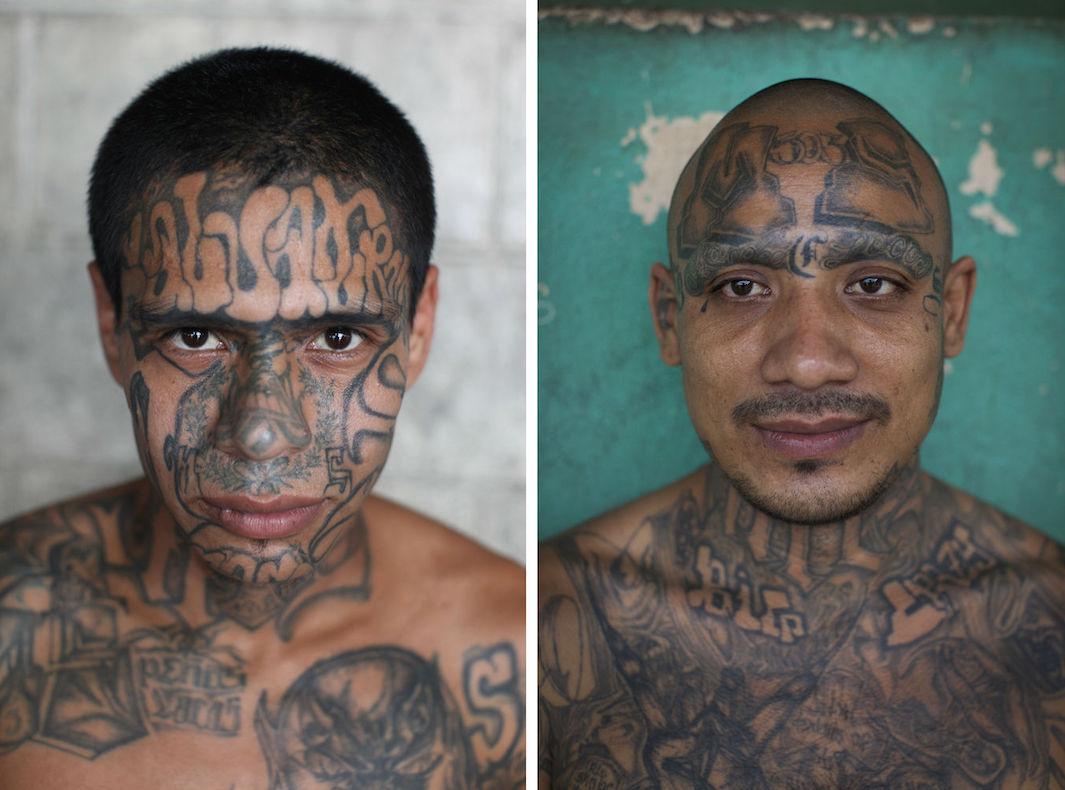Adam Hinton was working on a long-term project in El Salvador in 2013 when he heard that the leadership of the country’s two rival gangs—Mara Salvatrucha (MS-13) and 18th Street (Barrio 18)—had declared a truce. Hinton wanted to meet with MS-13, the larger and better known of the two, to look beyond the news and discover why men are drawn to gang life. He got his opportunity when he was given access to Penal de Ciudad Barrios, a prison that exclusively hosted MS-13 members. His photos are collected in the book, MS-13, which Paul Belford Ltd. published in September.
“When I heard about the truce I thought this would give me an opportunity to talk to the gang members themselves about what the gang meant to them and why they joined it. The poverty and hopelessness in the barrios of El Salvador was so extreme that these kids felt there was little other option for them; it was the only possible route out of the slum and poverty,” Hinton said via email.
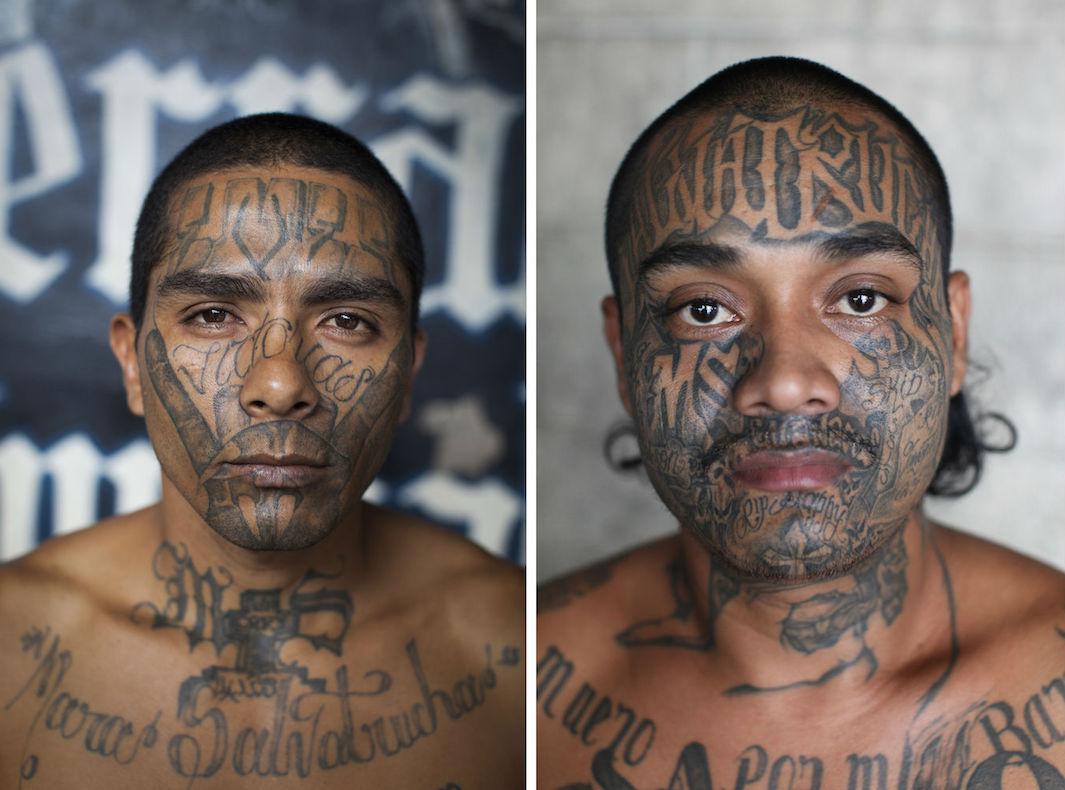
Copyright Adam Hinton / Panos
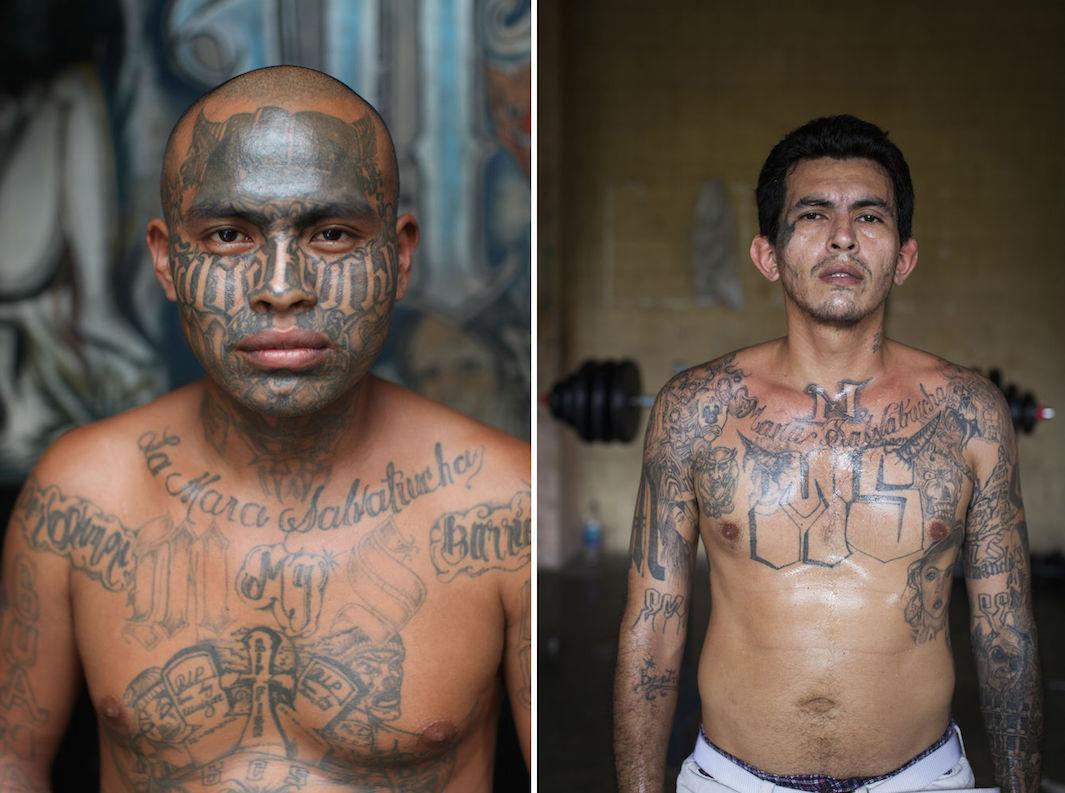
Copyright Adam Hinton / Panos
Penal de Ciudad Barrios was designed to hold 800 prisoners. When Hinton visited, it had more than 2,500. Its only guards were soldiers stationed on the perimeter of the facility. Inside, the prisoners policed themselves. When Hinton first walked in, the overcrowding stuck him; it had gotten so bad that some prisoners were sleeping on old doors hung from the ceiling that served as makeshift beds.
“There are men hanging around everywhere, the corridors are all packed with them, hanging around with nothing to do except kill endless amounts of time. The sanitation situation was appalling; pools of stagnant water covered with thick scum were everywhere. The prisoners had to set up their own hospital, if you could call it that. It was basically an old hall in the prison with a dozen stained mattresses to lie on. They had no medication on the day I visited,” he said.
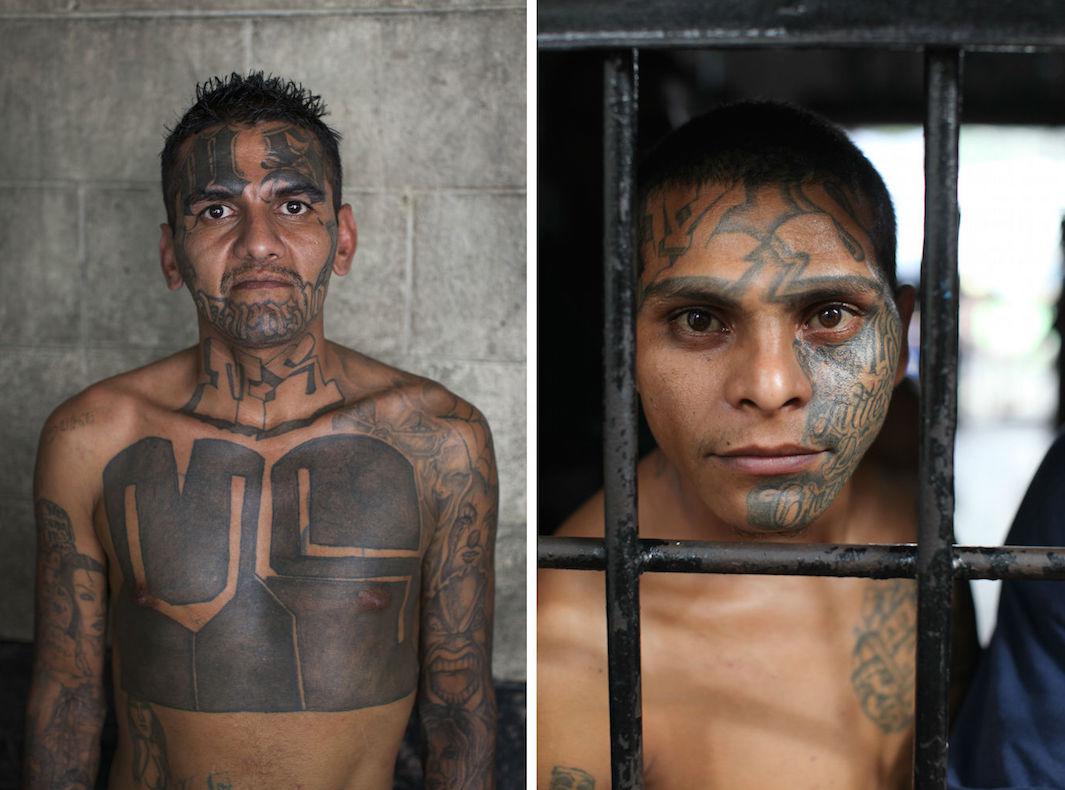
Copyright Adam Hinton / Panos
Hinton was granted free access to wander around the prison. He stayed for three or four hours, and when he saw someone interesting, he asked if he could take his portrait. No one refused. “They were all very open and relaxed about it; I guess it broke the monotony of the day,” he said.
An intriguing aspect of Hinton’s portraits are the men’s tattoos, which serve as signs of allegiance to the gang and tell personal stories about their childhoods, girlfriends, and killings. Though they’re visually striking, he wants readers to look beyond the surface of his subjects, as well as their criminal backgrounds, and recognize the real person beneath.
“I want these images to show that behind the tattoos and the media stereotype there is a human being. The guys don’t look threatening to me, which I find interesting. They look resigned to their future there. The easiest thing to say is that they are all just mindless killers who should locked up forever or hung. That’s a way of avoiding the real and difficult question of what drives so many of the poor young men into the gangs and what kind of society gave birth to the gangs.”
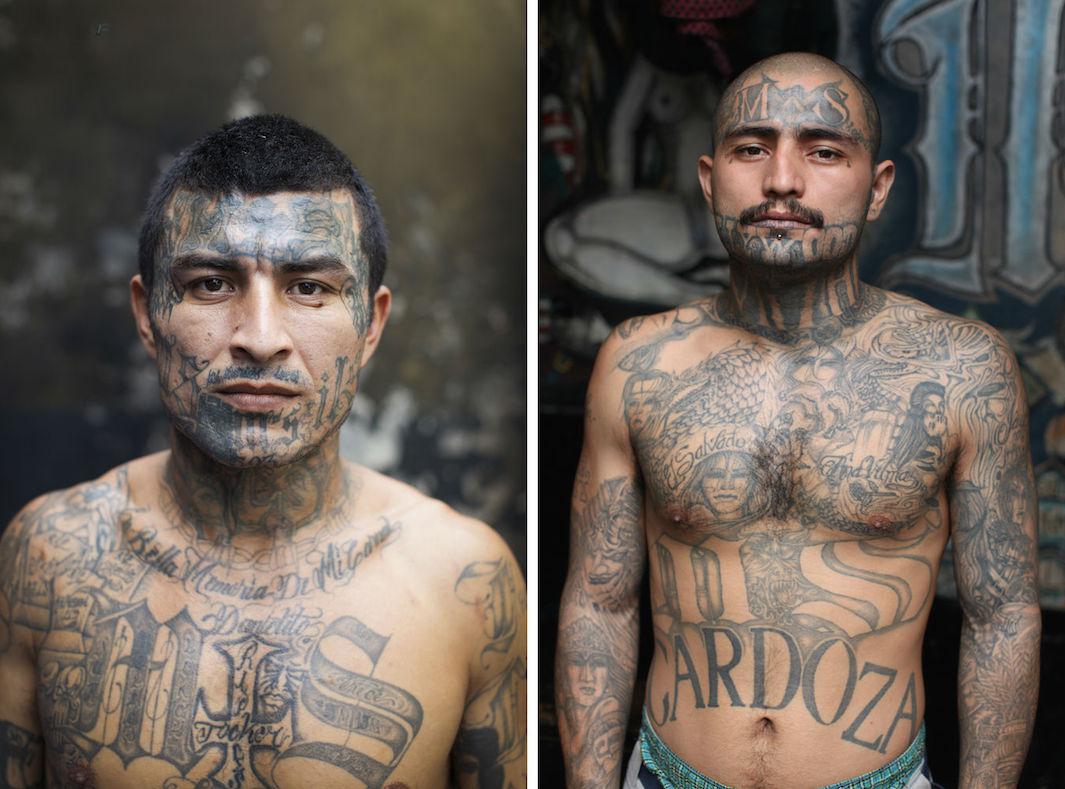
Copyright Adam Hinton / Panos
